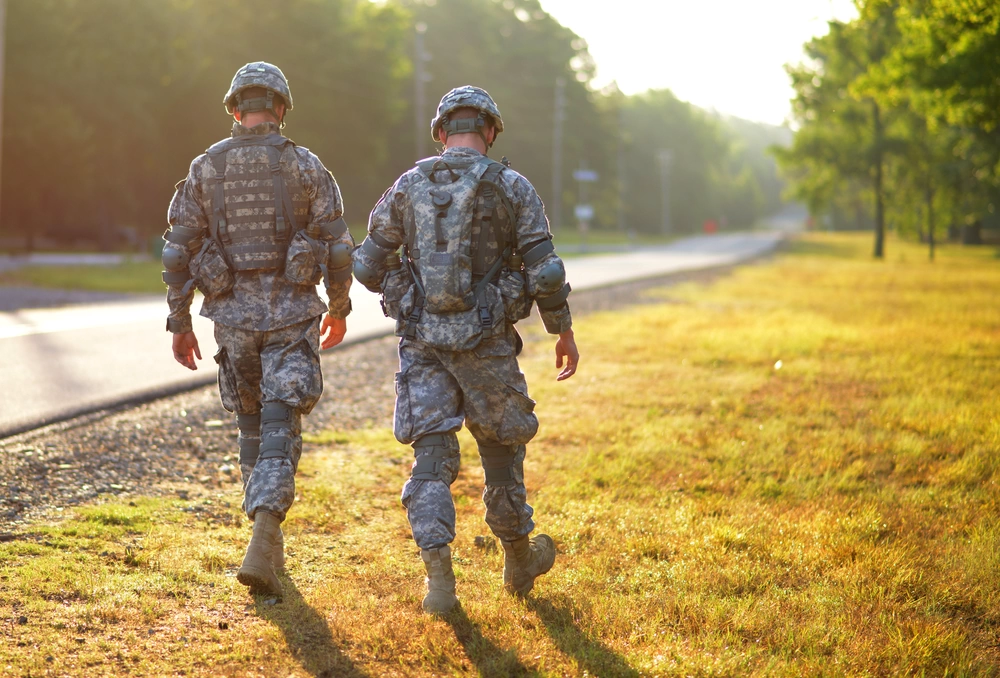by Rachel Sanders, MBA
Transitioning out of the military has its challenges, but this year has brought challenges we’ve never experienced before.
I expected uncertainty after separating from the U.S. Army, and I prepared for it. But no one expected a global pandemic to affect every aspect of our lives, from career choices to family visits.
It’s been a learning experience in many ways. I was fortunate to wrap up four years of service in the Army, including a deployment to Afghanistan, and find transitioning resources like Soldier For Life Transition Assistance Program (SFL-TAP), Hiring Our Heroes (HOH), and Wounded Warrior Project® (WWP). Each organization has contributed to smoothing my path to civilian life.
I started preparing a year in advance. I lined up an internship through HOH with a great health care company. I prepared myself to apply to a rigorous doctorate program and spend a good part of the next three years working on a Ph.D.
Thankfully, I’ve been able to complete my HOH internship and begin Ph.D. coursework despite the uncertainty we’ve all experienced during the last several months.
What I am still learning is that you can prepare for every scenario, yet there are things you cannot predict: a global pandemic, an uncertain job market, and starting your civilian career with a degree of distance between you and the people you planned to network with.
Even during economic booms, most people find it challenging to transition out of the military. After all, you’re going from military service, where your career path is a bit more predictable, to a less structured civilian world with no guarantees.
I don’t have all the answers, but I’ve learned three things over the past several months that are helping me get through my unique transition:
1. Start your transition process 18 months out.
This is what SFL-TAP and other organizations recommend. It does take about a year and a half to effectively prepare for your new chapter in your life.
2. Prepare financially.
I didn’t realize the importance of this until I attended an SFL-TAP class on financial budgeting. List all your bills, and determine your ideal job after the military, your expected salary, and where you’ll be living.
3. Know your path and ask for help.
As you lean on others for advice, you’ll figure out the path that works best for you. There are many options: pursuing an academic degree, going into the workforce, or becoming an entrepreneur and being your own boss. Each path is good, but you have to have a plan.
Please know there are resources to guide you. Feel confident asking for help—there’s a lot to work through when you transition. Not only do servicemen and women have to relearn how to apply for jobs, interview, and build a civilian résumé, but the salary and benefits we take for granted in the military are things you negotiate in the civilian world.
Offered free to warriors and their families, WWP’s career counseling program, Warriors to Work®, empowers participants to translate military experience into a civilian résumé, develop career skills, prepare for job interviews, get connected at job fairs and networking events, and facilitate relationships with potential employers. The teammates at WWP have been in our shoes. They understand that most of us took salaries and promotions for granted and can use help practicing negotiation skills. Your transition out of the military doesn’t have to be a lonely road. Talking to like-minded people at WWP reminded me that I’m in good company.
With WWP by my side, I know when I officially step away from the Army, I have someone rooting for me, empowering me, and encouraging me. It’s not always going to be easy, and there are challenges ahead. But there’s somebody there—like a battle buddy. When you’re in the Army, you have someone to your left and your right. I feel that moving forward, I have that same support to rely on.
I’m excited about the road ahead, whatever the challenges may be.
About the Author
Rachel Sanders, MBA, is a human resources consultant and a Ph.D. candidate. She is transitioning out of active duty as sergeant, U.S. Army, Ft. Campbell, Kentucky. She attended college as a Division 1 athlete and played basketball for Central Connecticut State University. She completed an MBA at Ohio Dominican University before enlisting in the U.S. Army. She’s now planning to work on a doctorate in business administration at Trevecca University and has relocated to Nashville.
